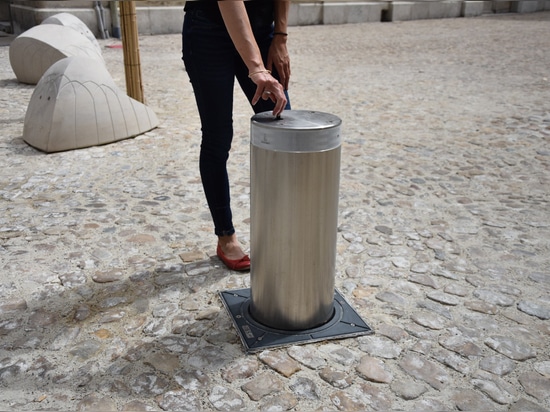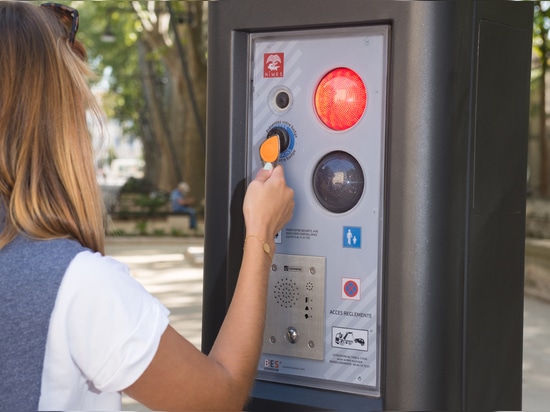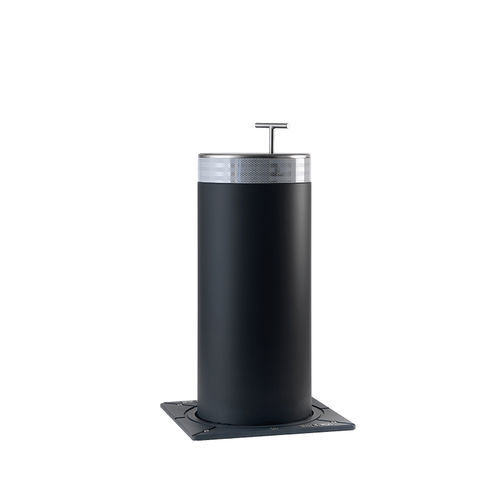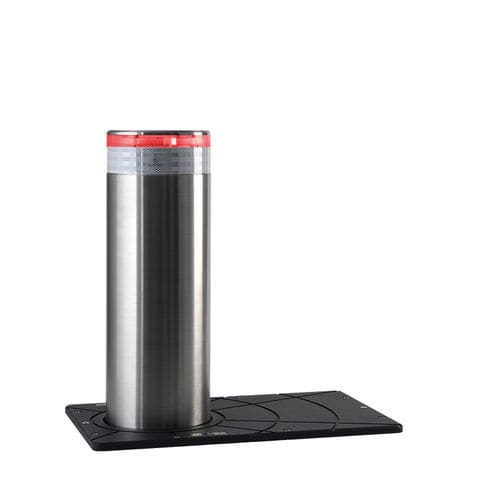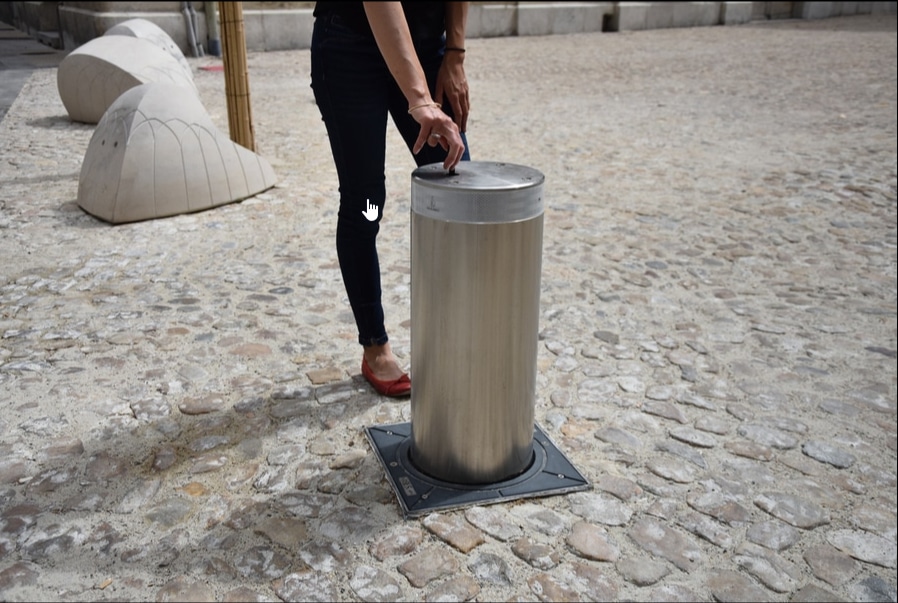
#Product Trends
How to choose a retractable bollard?
This article will help you ask yourself all the right questions if you want to equip yourself!
There are many retractable bollard solutions and technologies, so how do you choose?
FIRST OF ALL, WHAT IS A RETRACTABLE BOLLARD?
Also called a retractable stud, it is a safety device that controls vehicle access to an area. The bollard is the cylindrical obstacle on the roadway, which once lowered into the ground, frees access to allow the passage of a vehicle. Retractable bollards are ideal for temporarily closing access, limiting traffic to make a street pedestrian or even reserving a parking space. They are also an effective solution for securing a sensitive or risky area against the intrusion of ram vehicles. In this case, their role is to limit or prevent them from picking up speed.
In short, they meet a good number of applications for cities, company car parks, shopping centres, tourist and hotel complexes, collective housing, etc.
TYPES OF RETRACTABLE BOLLARD
Automatic, mechanical, manual retractable bollard etc. It's hard to see clearly... Before going any further, we take stock of the different types of terminals and their main characteristics. In this large family, there are 2 main categories; manual retractable bollards and automatic retractable bollards.
a manual retractable bollard raises and lowers into the ground by the action of a person with a release key. The user presents himself in front of the bollard to carry out the lifting and retraction maneuvers and thus free the passage to a vehicle. This type of terminal is generally chosen for occasional use insofar as the user has to move for each manipulation. In this family, we find the mechanical bollards, also called semi-automatic, which work with assistance by compressed air cylinder and the manual bollards, which work with total human intervention without assistance.
an automatic retractable bollard is equipped with a motorization system to facilitate its use without a person having to maneuver the bollard or get out of their vehicle. The user presents himself in front of the bollard and presents his means of control (badge, remote control, telephone, etc.) to lower it. It is often associated with management systems or software to allow remote control. This solution is preferred when the terminal is regularly used. In this family of motorized bollards, there are various technologies (electric, hydraulic, pneumatic, solar) that we recommend depending on the use and the environment.
1. FOR WHAT USE? WHERE WILL THE TERMINAL BE LOCATED?
First of all, you must know for what purpose and where the terminal will be installed. For example, do you want to equip:
a pedestrian zone, a market place, a military site, a car park, a residence…
Behind this question of installation hide several criteria to identify any limits or requirements that will influence the choice of the type of terminal, the motorization or the options:
- the climate: for installation in the mountains or in areas subject to negative temperatures, for example, the terminal will generally be equipped with a heating solution to keep out the cold and frost. For installation on the coast, the terminals will be equipped with an anti-corrosion stainless steel coating to protect them from a humid and saline environment.
- the context: if the bollard is going to be located in a pedestrian area, with high traffic at certain times of the year, the choice will be oriented towards a solution that takes greater account of the safety of pedestrians and bicycles.
- the type of vehicles that will cross the access: in the case of a passage of heavy and bulky vehicles such as on storage sites, we will rather recommend a high resistance bollard solution with a high height, of 600 to 800 mm, so that the installation withstands the weight of vehicles over time and to prevent the bollard from suffering severe damage in the event of an impact.
2. WHAT FREQUENCY OF USE?
Then, you must identify the level of use so that the chosen terminal is sufficiently efficient in relation to the number of ascents/descents that it will be required to do. The choice will be different depending on whether the terminal will be rarely used or, conversely, frequently used.
